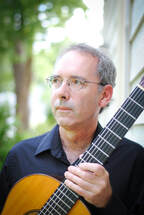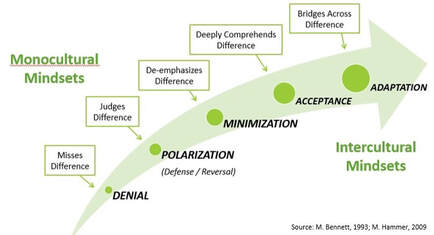 Pauline Eichten on behalf of the Beloved Community Staff Team The Intercultural Development Inventory, developed by Mitchell R. Hammer, professor of international peace and conflict resolution at American University, assesses intercultural competence as the capability to shift cultural perspective and appropriately adapt behavior to cultural differences and commonalities. To help us grow our ability to be an anti-racist, multicultural spiritual community, a number of key ministry groups at Unity Church are being invited to take the IDI. The sessions are also available to individual congregants. In the March issue of commUNITY (and the last blog post here at the BCST page), Peter Heege talked with Kelley Nelson, one of our three qualified IDI administrators, about the role of the administrators. This month we asked Unity Church member Nick Raths about his experience with the IDI. When he walked into the Welcome Team group profile feedback session, Unity Church member Nick Raths didn’t know anything about the Intercultural Development Inventory (IDI). When he left, he thought “this IDI thing is really important!” Betsy Hearn, one of our qualified IDI administrators, talked with me about the Welcome Team session. The group started with a discussion about culture: what do we mean by it, and what do we know about our own culture. The facilitators used the iceberg metaphor, which says the majority of what makes up culture is “hidden,” to explore what cultural differences might look like. Then they reviewed the IDI continuum and the different stages of development. It was the first time Nick had seen the IDI continuum. “It made sense,” he said. “I could see myself at different times in my life. The group profile was then explained. This profile shows a distribution of where each individual locates on the continuum, but not any individual result. Those are only shared with a qualified IDI administrator. According to Betsy, this Welcome Team group had a typical profile. Sixty-four percent of the group ended up in the center, in minimization, similar to results of groups around the world. Minimization highlights the commonalities in basic human needs and values and de-emphasizes the differences. This can impede recognition or appreciation of deeper cultural differences.
Members of the Welcome Team group had what she described as a “healthy conversation” about the practice of welcoming. How have we learned to do it, and is that how someone else might want to be welcomed? What is the role of the Welcome Team? Betsy commented on how multi-layered the role can be, from greeting people at the door, to managing the flow in and out of the sanctuary, to helping people find their way around the building. As Nick and I talked, he shared his realization that he needs to be more conscious of his own lens, to reflect more in the moment: What am I thinking? How is that affecting my behavior? I asked him how he thought the IDI might affect his ministry. “I never thought of being on a Welcome Team as a ministry,” he said, but he sees how Welcome Teams can set the tone for how people experience Unity Church. Unity Church has a culture that some might take for granted and find quite comfortable, but may not feel welcoming to some others. The IDI offers an opportunity to become more aware of how each of us experiences cultural difference. The one-on-one feedback session provides the greatest potential value. It can offer a roadmap to help a person further develop their self-awareness and ability to facilitate learning across cultures. Nick is looking forward to his one-on-one feedback and is eager to learn more about what he can do to grow. Betsy emphasized that there is no right or wrong with the IDI; it is simply a benchmark to grow from. The individual IDI profile and the one-on-one feedback sessions will help each of us grow in self-awareness and intercultural competence. And that will help us fulfill Unity Church’s stated Ends of building an anti-racist, multicultural Beloved Community. There’s no charge for the IDI and the individual sessions, although donations to cover the cost are accepted. Anyone interested is encouraged to get on the schedule by contacting Drew Danielson at [email protected] to sign-up.
0 Comments
Leave a Reply. |
Topics
All
Beloved Community ResourcesUnity Justice Database
Team Dynamics House of Intersectionality Anti-Racism Resources in the Unity Libraries Collection Creative Writers of Color in Unity Libraries The History of Race Relations and Unity Church, 1850-2005 Archives
July 2024
Beloved Community Staff TeamThe Beloved Community Staff Team (BCST) strengthens and coordinates Unity’s antiracism and multicultural work, and provides opportunities for congregants and the church to grow into greater intercultural competency. We help the congregation ground itself in the understanding of antiracism and multiculturalism as a core part of faith formation. We support Unity’s efforts to expand our collective capacity to imagine and build the Beloved Community. Here, we share the stories of this journey — the struggles, the questions, and the collaborations — both at Unity and in the wider world.
The current members of the Beloved Community Staff Team include Rev. Kathleen Rolenz, Rev. KP Hong, Rev. Lara Cowtan, Drew Danielson, Laura Park, Lia Rivamonte and Angela Wilcox. |
